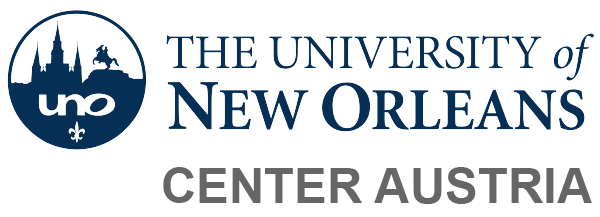Anton Pelinka (1941-2025)
Photo courtesy University of Innsbruck
In Memoriam: Anton Pelinka and UNO
Günter Bischof
Anton Pelinka helped shape the budding partnership between the Universities of Innsbruck (UI) and New Orleans (UNO). In 1978/79 he served as the first Innsbruck guest professor at UNO. He was friends with the famous UNO political scientist Werner Feld, an authority on the United Nations and NATO and international organizations. Anton Pelinka welcomed many an UNO political scientist to his Institute at UI, which he helped to build (known as “the Pelinka Institute). His long time office manager Ellen Palli helped shape the annual program of UI-students at UNO in the semester break (the “Austrian Student Program,” which went on for some 25 years).
The death of Anton Pelinka is a personal, national, and international tragedy
Personally I worked with Anton for many years. We edited the first 15 volumes of Contemporary Austrian Studies together. He was an inspiration to work with. He was reliable, discerning and critical to work with. He was the most reliable academic I ever met and a real role model in that sense. If he promised to write an essay, an introduction to a volume, or a book review, he would deliver early or on time. What I learned on the job is that many colleagues can’t be relied on to deliver what they promise, let alone on time. Not Anton – he was the most reliable person imaginable. And this even though he had real jobs to do as a professor in Innsbruck he had to prepare lectures and teach his students, as the head of the “Institute of Conflict Research” in Vienna, he had to raise funds and supervise a number of researchers.
He was famously discerning and productive a political scientist. He was never loath to tackle new subject matters as they entered the arena. We did a volume on the “Vranitzky Era” soon after Vranitzky left office (vol. 7 in 1999). Of course, Anton knew everybody in the field, so it was easy to put such a volume together.
He was famously productive as a scholar. And public intellectual. Next to producing a volume of CAS every year, Anton kept churning out volume after volume of his own writings on a annual basis, next to his regular commentaries in newspapers, interviews and talk shows with Austrian TV (ORF), not to mention his busy lecture schedule. He came to the University of New Orleans (UNO) regularly to lecture. On topics that were “hot” in Austria, be it neutrality or Turkey’s possible EU-membership.
Anton was a critical spirit. No one was more concerned about the survival of Austrian democracy in the age of Jörg Haider and the populist Austrian Freedom Party (FPÖ). Haider even sued Anton fi=or defamation, after Anton charged on Italian TV that Haider downplayed the National Socialist past of the Party. Anton was aquitted, also after a group of international scholars wrote a letter on his behalf to the Austrian President..
Anton Pelinka’s passing is a national tragedy. No one explained the nature of what constituted “Austria” better to the world at large. He did this in lectures, commentaries and books. When the famous German weekly Die Zeit started a regular page on Austrian affairs, they got Anton Pelinka to cover Austria. When an Anglo-American publisher wanted Austria explained to the English-speaking world, they asked Anton to do it. And he would do so with skill and bravura—Austria: Out of the Shadow of the Past might be the best one-volume introduction to the country. But not only the world at large learned about Austria in clear and understandable language from Anton, Austrians did too. I grew up with ORF round-table discussion groups, led by Anton, and I’ve never forgotten those spirited discussions. His range of interests was vast and he carried his audiences along.
Anton Pelinka’s death is an international tragedy. There are few political scientists in the world with a similar range of interests. He was a guest professor in India, at UNO, Harvard, Stanford and Michigan. He was shaped by the famous Jewish émigré scholar Karl Lazarsfeld who helped found the Viennese “Institute of Advanced Studies” (HIS) funded by the Ford Foundation. The IHS taught young Austrians the social sciences (including political science) in the 1960s.So the young graduate of the University of Vienna’s Law School enrolled in the IHS to learn the principles of political science, which he later taught to numerous young Austrians at the University of Innsbruck (as a student in Innsbruck, I remember seeing the young professor Pelinka with his Basque hat [Baskenmütze], indicating a progressive spirit, entering the university building).

